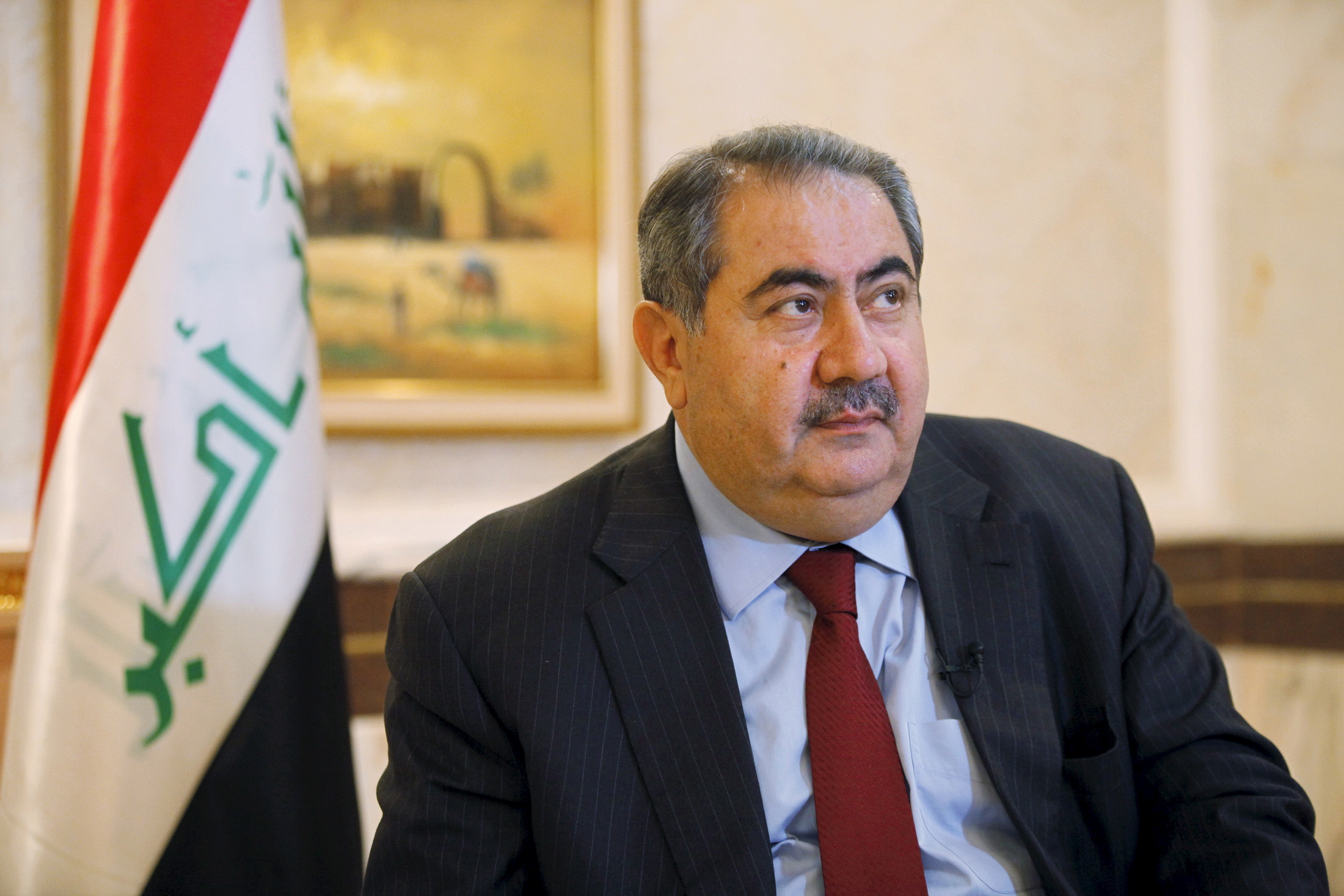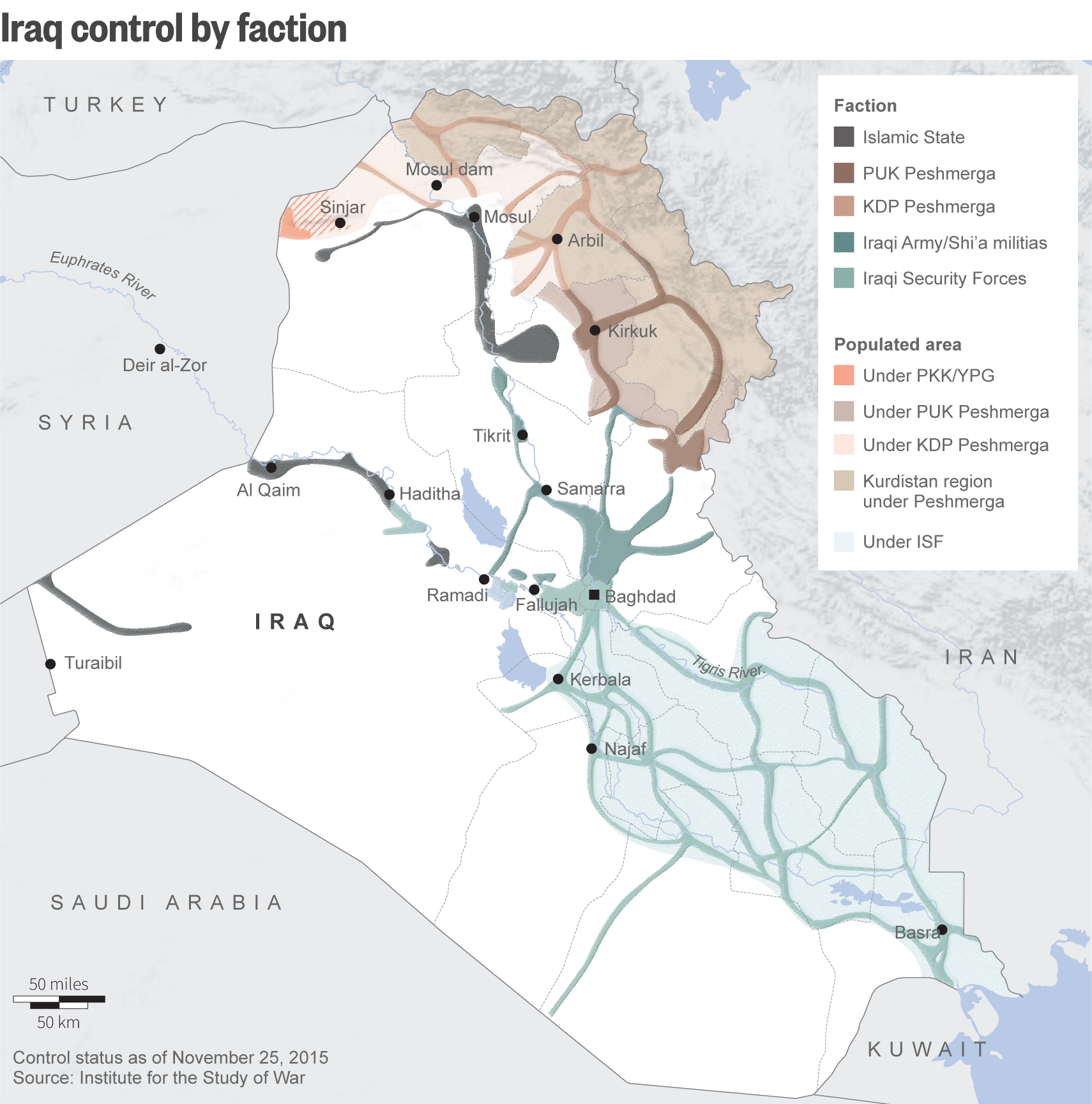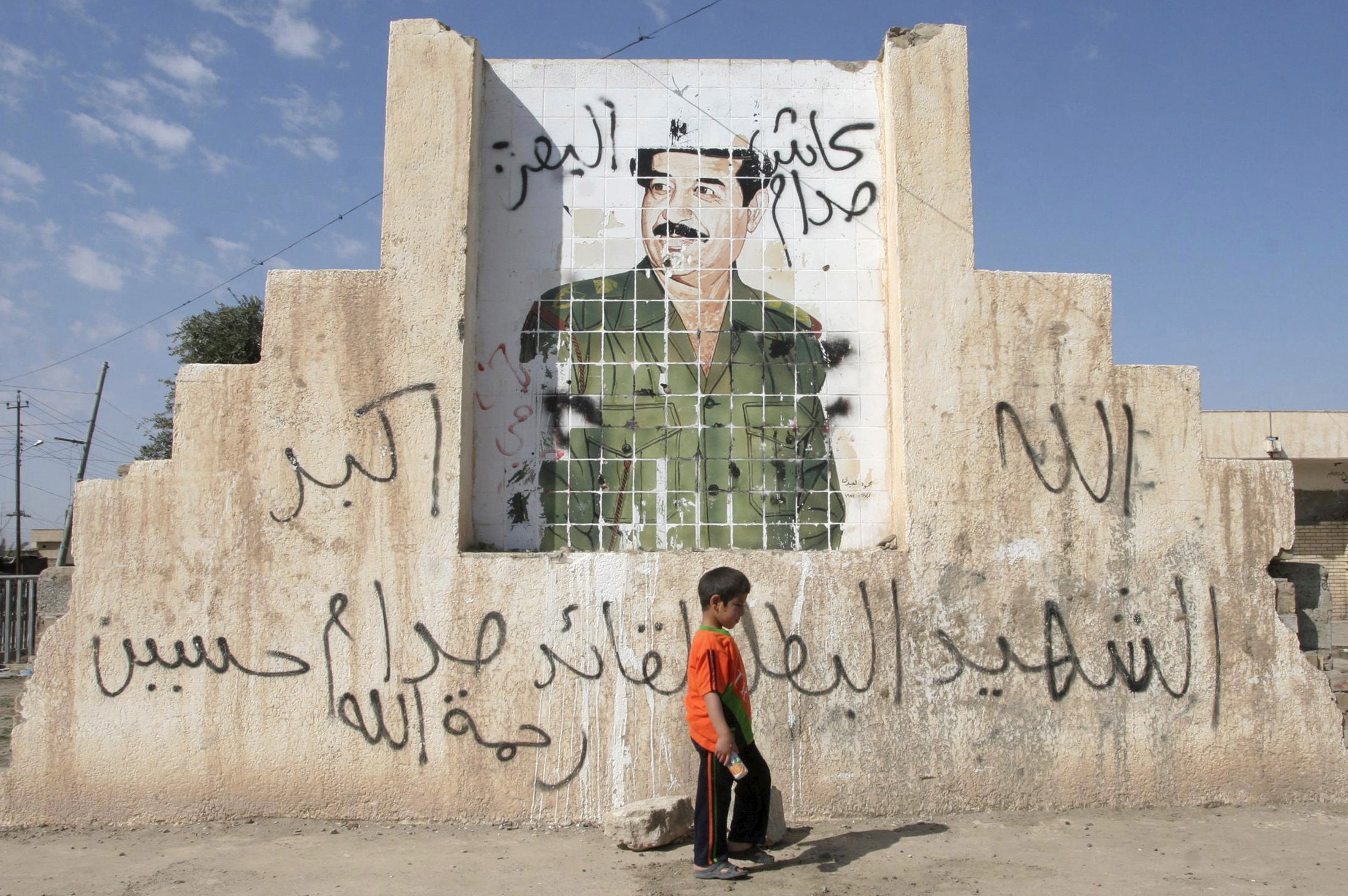By Isabel Coles and Ned Parker/Reuters

MALA QARA, Iraq – Mohannad is a spy for Islamic State. He eavesdrops on chatter in the street markets of Mosul and reports back to his handlers when someone breaks the militant group’s rules. One man he informed on this year – a street trader defying a ban on selling cigarettes – was fined and tortured by Islamic State fighters, according to a friend of Mohannad’s family. If the trader did not stop, his torturers told the man, they would kill him.
Mohannad is paid $20 for every offender he helps to catch.
He is 14.
The teenager is one cog in the intelligence network Islamic State has put in place since it seized vast stretches of Iraq and neighboring Syria. Informers range from children to battle-hardened fighters. Overseeing the network are former army and intelligence officers, many of whom helped keep former Iraqi strongman Saddam Hussein and his Baath Party in power for years.
Saddam-era officers have been a powerful factor in the rise of Islamic State, in particular in the Sunni militant group’s victories in Iraq last year. Islamic State then out-muscled the Sunni-dominated Baath Party and absorbed thousands of its followers. The new recruits joined Saddam-era officers who already held key posts in Islamic State.
The Baathists have strengthened the group’s spy networks and battlefield tactics, and are instrumental in the survival of its self-proclaimed Caliphate, according to interviews with dozens of people, including Baath leaders, former intelligence and military officers, Western diplomats and 35 Iraqis who recently fled Islamic State territory for Kurdistan.
Of Islamic State’s 23 portfolios – equivalent to ministries – former Saddam regime officers run three of the most crucial: security, military and finance, according to Hisham al-Hashimi, an Iraqi analyst who has worked with the Iraqi government.

Iraq’s Finance Minister Hoshyar Zebari, a Kurd who spent years opposing Saddam’s regime, said the ex-Baathists working with Islamic State provide the group with highly effective guidance on explosives, strategy and planning.
“They know who is who, family by family, name by name,” he said.
One former senior security official in the Baath Party said, “The fingerprints of the old Iraqi state are clear on their work. You can feel it.”
In many ways, it is a union of convenience. Most former Baathist officers have little in common with Islamic State. Saddam promoted Arab nationalism and secularism for most of his rule.
But many of the ex-Baathists working with Islamic State are driven by self-preservation and a shared hatred of the Shi’ite-led government in Baghdad. Others are true believers who became radicalized in the early years after Saddam’s ouster, converted on the battlefield or in U.S. military and Iraqi prisons.
One former intelligence commander who served in Iraq’s national intelligence service from 2003 to 2009 said some ex-Baathists pushed out of state agencies by Iraq’s government were only too happy to find new masters.
“ISIS pays them,” he said.
A few Sunni lawmakers hope that former Saddam-era officers might be persuaded to abandon their Islamic State allies. But a senior official close to Iraqi Prime Minister Haider al-Abadi said dealing with them was difficult because the Baathists are so deeply split, with some supporting Islamic State and some opposed.
“Who are they?” he asked. “Some wave olive branches. Others still wave a gun.”
A spokesman for Abadi, Saad al-Hadithi, said the Iraqi government opposes negotiations with the Baath Party.
“There is no space for them in the political process,” he said. “They are banned under the Constitution.”
TURNING POINT IN TIKRIT
Baathists began collaborating with al-Qaeda in Iraq – the early incarnation of what would become Islamic State – soon after Saddam Hussein was ousted in 2003. Saddam had run a brutal police state. The U.S. occupation dissolved the Baath Party and barred senior and even middling party officials from joining the new security services. Some left the country; others joined the anti-American insurgency.
But then the Baathists and jihadists disagreed over who should be in charge. Many ex-Baathists struck an alliance with the U.S. military and turned on the jihadists.
By 2014, the Baathists and the jihadists were back to being allies. As Islamic State fighters swept through Central Iraq, they were joined by the Army of the Men of the Naqshbandi Order, a group of Baathist fighters.
The Naqshbandi and smaller groups of Saddam-era officers made up the majority of fighters in the initial stages of last year’s military onslaught, according to Sunni tribal leaders, Baathists and an Iraqi security commander. It was the Naqshbandi who rallied locals in Mosul to rise up against Baghdad, and who planned and commanded many of last year’s military advances, according to Iraqi officials and Abdul al-Samad al-Ghrairy, a senior official in what’s left of the Baath Party.
Within days, though, Islamic State “took the revolution from us,” said Ghrairy. “We couldn’t sustain the battle.”
In Tikrit, Islamic State fighters opened a jail and released up to 200 followers. More Islamic State fighters poured into the city, many of them with heavy machine guns. These men “took all the army’s weapons and didn’t give the Naqshabandi any. They kicked them aside,” a senior security official in Salahuddin said.
Soon after the fall of Tikrit in June 2014, leaders from the main factions of the Sunni rebellion met in the house of a Baath Party member. According to the senior security official, Tikrit tribal leaders and Baath officials, Islamic State told Baathists they had a choice: Join us or stand down. Some Baathists abandoned the revolt. Others stayed, swelling the ranks of Islamic State with mid-level security veterans.
That has boosted Islamic State’s firepower and tactical prowess.
“This is not the al-Qaeda we fought before,” said a prominent Sunni from Mosul who battled Islamic State’s forerunners. “Their tactics are different. These are men educated in military staff college. They are ex-army leaders. They are not simple minds, but men with real experience.”
Both Ghrairy and Khudair Murshidy, the Baath Party’s official spokesman, told Reuters that the party’s armed wing is frozen in the aftermath of its defeat. Islamic State, they added, had killed some 600 Baath supporters and Naqshbandi fighters.
“Their policy is to kill everyone, destroy everyone,” Murshidy said. “They create fear and death everywhere and control areas. Many people have joined them now. At first they were a few hundred, now they are maybe more than 50,000.”
“THE WALLS HAVE EARS”
Emma Sky, a former adviser to the U.S. military, believes Islamic State has effectively subsumed the Baathists. “The mustached officers have grown religious beards. I think many have genuinely become religious,” she said.
Among the most high profile Baathists to join Islamic State are Ayman Sabawi, the son of Saddam Hussein’s half-brother, and Raad Hassan, Saddam’s cousin, said the senior Salahuddin security official and several tribal leaders. Both were children during Saddam’s time, but the family connection is powerfully symbolic.
More senior officers now in Islamic State include Walid Jasim (aka Abu Ahmed al-Alwani) who was a captain of intelligence in Saddam’s time, and Fadhil al-Hiyala (aka Abu Muslim al-Turkmani) whom some believe was a deputy to Islamic State leader Abu Bakr al-Baghdadi until he was killed in an airstrike earlier this year.
 View image
View image
The group’s multi-layered security and intelligence agencies in Mosul, the biggest city in northern Iraq, are overseen by an agency called Amniya – literally “Security.” The agency has six branches, each responsible for maintaining a different aspect of security.
The overall head of Amniya in Iraq and Syria is a former Saddam-era intelligence officer from Fallujah called Ayad Hamid al-Jumaili, who joined the Sunni insurgency after the U.S.-led invasion and now answers directly to Baghdadi, according to Hashimi, the analyst.
A vice squad known as Hisba enforces order on the streets. Hisba officers punish everyone from cigarette traders to women not fully covered. They also run a network of informants, placing children such as 14-year-old Mohannad in mosques and markets, and women at funerals and family gatherings, according to residents of Mosul.
“The work of these children is rewarded with gifts or small cash prizes,” said the former intelligence officer. “Women, on the other hand, are recruited mostly from (Islamic State) families and they gather information for no reward.”
The repression has become so intense in Mosul, residents said, people have revived a phrase used in Saddam’s era: “The walls have ears.”
Interviews with 35 men who recently escaped from Islamic State-held villages around Mosul offer rare details of what is happening inside Islamic State territory.
Reuters sat in on debriefings of the men by Staff Lieutenant Colonel Surood Abdel Salal, a Kurdish intelligence official at a base behind the frontline south of Erbil. Most of those questioned were former members of the Iraqi security forces defeated by Islamic State in Mosul.
The 35 men described a life of increasing deprivation under Islamic State and a climate of paranoia in which they could trust no-one, even their own relatives.
One man in Mosul told Reuters his brother had been executed in early October after he cursed Islamic State and the Caliphate while arguing with his son, who wanted to join the group.
“My brother’s shouting was heard by the neighbors. During that time there was a group of children who were playing in front of the house,” said the man. “Not a week had passed and my brother was arrested on charges of cursing God and the Islamic State.”
Islamic State execution squads often arrive in a large bus with tinted windows, another resident said. Police seal off streets surrounding the place where a killing is to be carried out. Men dressed in black with balaclavas either shoot people, or behead them with swords.
The bodies of those deemed to have committed the worst offenses – cursing God or the group – are thrown in an area called al-Khafsa, a deep natural crater in the desert just south of Mosul, residents in the city said. Those killed for lesser crimes are returned to their families wrapped in a blanket.
A WEB OF INFORMANTS
In September, according to several of the men who fled, Islamic State’s Amniya agency rounded up around 400 former members of Iraq’s security forces and executed them. Families of those dumped in al-Khafsa were then sent a kind of receipt to notify them of the execution. Among those who described the massacre was a 21-year-old from a village east of Mosul whose cousin’s corpse was returned on the second day of the Muslim Feast of Sacrifice.
“They brought it wrapped in a blanket with three bullet wounds,” he said.
Some of the 35 escapees said people are banned from leaving Islamic State territory; those caught leaving are routinely killed. Two escapees recounted the fate of a group of men who tried to leave recently. Islamic State caught them and executioners dropped a concrete blast wall on top of them. The killing was filmed and replayed on large screens the militants have erected in public spaces.
According to the fugitives’ testimony, Islamic State has embedded itself in almost every village, converting the homes of former Iraqi military officers into bases and creating a web of informants. Mobile phones are banned as is access to the Internet.
“They had an informant in each area who said so-and-so didn’t go to prayers,” said Fathi, a 30-year-old former policeman from a village east of Mosul.
Many of the escapees had been on the run for months, carefully avoiding Islamic State checkpoints, especially those equipped with laptops the militants use to look up names on a database. Some hid in woodland along the Tigris River.
Ahmed, 32, said he was wanted by Islamic State for belonging to a tribal militia that fought the insurgents before the fall of Mosul. He said he had not been home for months because he feared one of his young daughters would betray his presence. “Maybe someone will come and ask my children (where I am) and they don’t know any better,” he said.

Local Islamic State leaders send their own children out as scouts, some of the escapees said. One man said the militants paid cigarette sellers to inform on their customers. So pervasive is Islamic State’s surveillance network that even at home people cannot let their guard down, according to 31-year-old policeman Saad Khalaf Ali. He was arrested and accused of speaking against the militants. He denied it, but the militants produced footage of him in his own home saying he wished for government forces to retake the area. The video had been secretly filmed by a boy from the village, the policeman said.
“They take advantage of small children most of all because people don’t suspect them,” he said.
Ali begged the militants for forgiveness and was released. But they detained him again several months later on charges of informing Kurdish and Iraqi forces about Islamic State positions. This time, he said, his own nephew and a cousin informed on him. He would have been executed but for a joint raid by American and Kurdish Special Forces in October which rescued him and 68 others.
UNDER PRESSURE?
It will be difficult for Baghdad to lure away ex-Baathists and Saddam-era officers working with Islamic State. The Iraqi government itself is bogged down by internal divisions, while the parts of the Baath party that have not joined Islamic State cannot agree on whether they want talks, or even who should represent them.
Meantime the war drags on.
In October, Baghdad created a special office to share intelligence between Iraq, Iran, Russia and the Syrian government. That office is providing Iraq’s air force with information on Islamic State positions. Baghdad has also stepped up efforts to squeeze Islamic State financially by attacking oil facilities, pressuring businessmen who have helped the militants, and stopping salaries to government employees in areas under Islamic State rule.
Iraqi Finance Minister Zebari said Islamic State in Mosul had responded by “extorting more money from the public. They are going more towards criminal actions and kidnapping.”
The group’s surveillance network is testament to its resourcefulness and ability to survive.
After his release from prison, Ahmed al-Tai’i, the cigarette salesman reported by 14-year-old Mohannad, confronted the boy’s father. The father admitted that Islamic State militants had paid Mohannad and other youngsters to help them, according to a friend of Tai’i.
The cigarette salesman says his arrest and imprisonment have left him paranoid.
“Since I left prison a constant fear has lived with me. If I want to say or do something that contravenes the orders and instructions of Islamic State I look around to check there is nobody, even my friends, and especially small children,” he said. “I have lost trust in everyone around me.”

Coles reported from Mala Qara and Parker from Erbil; Additional reporting by Ahmed Rasheed, Stephen Kalin and Michael Georgy in Baghdad and Phil Stewart in Washington.
–
Comments welcome.
Posted on December 16, 2015


